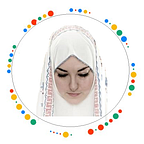Islam
“Islām” is an Arabic word which means peaceful, willing submission — submission to the code of conduct ordained by God . So Islam is a religion, but it is also a complete way of life based upon a voluntary relationship between an individual and his Creator. It is the way of life ordained by God which was taught by each of His prophets and messengers, Noah, Abraham, Moses, Jesus and Muhammad, peace be upon them all.
What distinguishes Islam from other religions is that it refuses to accept any form of creation, whatsoever, as a deity worthy of worship. Instead, it emphasizes the exclusive worship of the one God who created the entire universe and to whom all creation will eventually return.
Monotheism is the foundation of Islam and its most important concept which cannot be compromised in any way. Not only is God acknowledged as the sole creator and sustainer of everything in existence, but Islam declares that He is the only true deity and He alone is worthy to be worshipped.
إِيَّاكَ نَعْبُدُ وَإِيَّاكَ نَسْتَعِينُ
You alone we worship and You alone we ask for help.
— Quran 1:5
Further, it recognizes that the attributes of God are nothing like those of His creation and cannot be compared to it; He is absolute and unique.
He is God the One.
God, the Eternal, Absolute.
He begets not, nor was He begotten.
And there is none comparable to Him.
— Quran 112
By following God’s guidance as revealed in the Quran, an individual can obtain meaning and purpose in this live and eternal paradise in the hereafter.
(credit : Islam in Brief, GainPeace, Chicago, IL)
The Islamic understanding of God is simpler, and is similar to the Jewish understanding in many respects. The critical elements of Islamic creed rest upon the word tawheed, which defines the One-ness of Allah, affirms His many unique names and attributes, and directs people to speak and act in a manner pleasing to God. According to the Islamic religion, Allah is One in essence, eternal and absolute. He is living, self-subsisting, all-knowing, all-powerful. He is in need of no one, but all are in need of Him. He does not beget, and is not begotten. He is “the First,” without beginning, “the Last,” without end, and He has no partners or co-sharers in divinity.
Allah is “the Predominant,” above Whom there is no one. He is “the Omniscient,” perfect in knowledge, comprehending all things large and small, open and concealed, and “All-Wise,” free from errors in judgment. He is “the Compassionate,” “the Merciful,” whose mercy encompasses all creation. However, while Allah loves and rewards belief and piety, He hates impiety and punishes transgression. Being “the Omnipotent,” His power is absolute, and none can frustrate His decree. Many other characteristic names are given in the Holy Qur’an, such as Allah being the Lord and Master of creation: humankind having been created through His will and living, dying, and returning to Him on The Day of Judgment according to His decree. Muslims further recognize that Allah is beyond complete human understanding, as there is nothing in creation comparable to Him. Perhaps in the afterlife we will be gifted with greater understanding, but in this life, knowledge of our Creator is confined within the boundaries of revelation. Similar to Judaism, but unlike Christianity, there are no physical representations of Allah in Islam. Consequently, the minds of the believers are not befuddled with anthropomorphic “big man in the sky” imagery. Furthermore, the Islamic religion does not assign gender to Allah, for Allah is understood to be transcendentally above all such characteristics. The attribution of sexual traits is considered especially offensive, blasphemous even, to Muslims. So, while referred to by the male pronoun in the Qur’an, this is nothing more than a linguistic necessity, for there is no gender-neutral pronoun in the Arabic language. Lord, God, Creator and Master though He may be, nowhere in Islam is Allah referred to as “Father.”
The Islamic understanding of God meets a number of objections in the predominantly Christian West. The first is that Islam recognizes Jesus as a prophet but not as a “son of God,” and especially not in a “begotten, not made” sense. The second is that Islam teaches the One-ness of God and condemns the concept of the Trinity. The third objection is that Muslims do not believe humankind inherited the burden of original sin, for this concept is not compatible with God’s justice and mercy. The last is that Muslims believe Jesus was raised up and saved from crucifixion, which invalidates the doctrines of atonement and resurrection. These differences in belief are significant, for they constitute the major fault-lines where the continental shelves of Christianity and Islam collide.
-source: Laurence B. Brown, MisGod’ed: A Roadmap Of Guidance And Misguidance In The Abrahamic Religions, pages 54–56 (PDF Version)
PDF+Audio: MisGod’ed | LevelTruth.com
recommended books written by an American Muslim Suzanne Haneef:
1- What Everyone Should Know About Islam and Muslims (PDF)
2- Islam: The Path of God (PDF)
Allah knows best.
